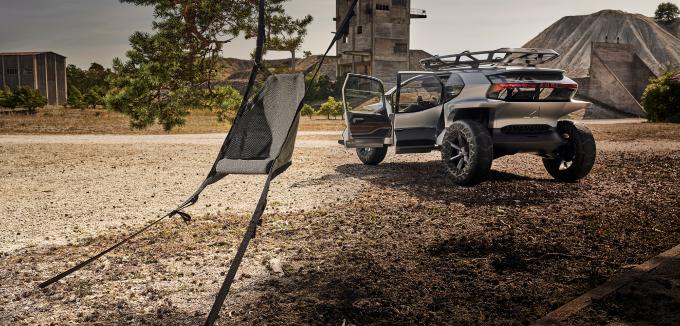Audi
Audi prototype AiTrail with expandable hammock rear seats: Innovative ideas have mainly their own employer, the interviewed managers
Switching to electric drives is costly and difficult, a bunch of new competitors are lurking in mobility services, and there are still stagnating or falling shipments: After years of global growth, the automotive industry is now in difficult times.
But how does the industry cope with the increasing pressure? In which areas does the previous business model erode the most? How good is the industry itself in terms of innovations equipped, and where must the car manufacturers and suppliers still urgently refill?
The longitude consulting and research institute Longitude, which belongs to the business paper “Financial Times”, investigated these questions on behalf of the 3D printing and prototype specialist Protolabs. Longitude interviewed 300 automotive industry executives over the summer with seven in-depth interviews with executives.
A result the study Protolabs’ customer was particularly surprised: “The automotive industry’s self-confidence in its own innovative strength is strong, but it was less pronounced when it came to its competitors,” says Protolabs Europe CEO Björn Klaas.
Seven out of ten respondents currently see high pressure for innovation
Expressed in figures, 82 percent of respondents were confident that their company would be able to meet changing customer needs over the next 12 months. 77 percent are well equipped to compete with new competitors. And more than two thirds, namely 69 percent, think that they are also able to conquer new markets.
Innovation pressure in the automotive industry as high as never before
The auto industry itself faces high pressure. 69 percent of managers said they were never under as much innovation pressure as they are now. Slightly more than half expect a new competitor with a revolutionary vehicle to disturb their markets.
While managers are fairly self-confident about the success of their own business, they are much more pessimistic about their competitors. Almost half of the respondents, exactly 49 percent, think that the rest of the industry is not well prepared for future upheavals.
As many as 52 percent of respondents even believe that at least one traditional European car brand will have to cease its business over the next three years. That was one of the choices when it came to the question of those events that respondents think likely over the next 36 months. “The respondents believe that one of the competitors can not stand there,” Klaas interprets.
Page 1 of 2

